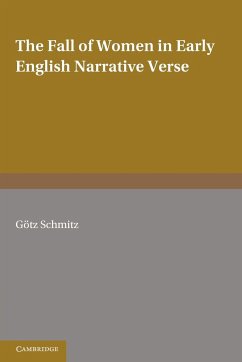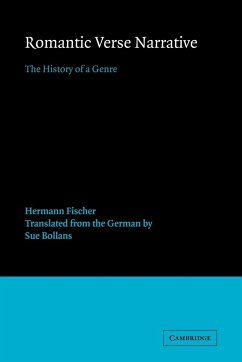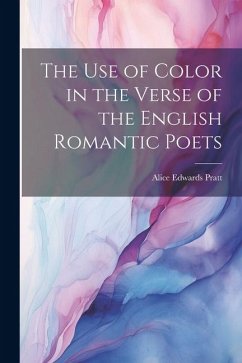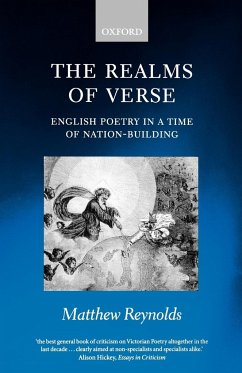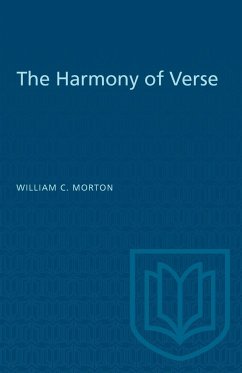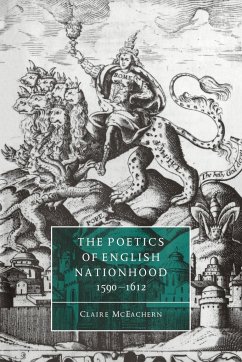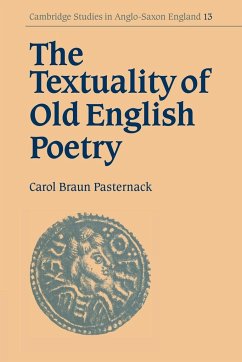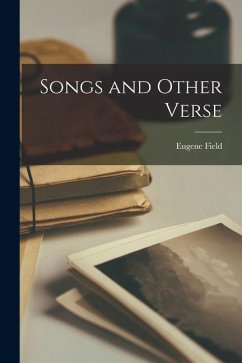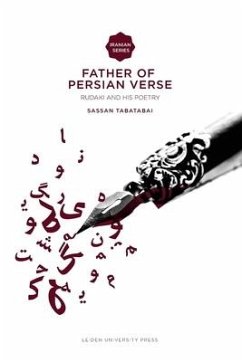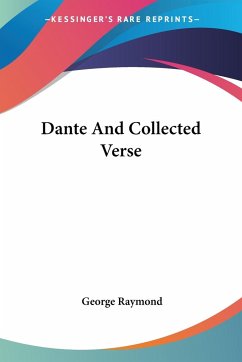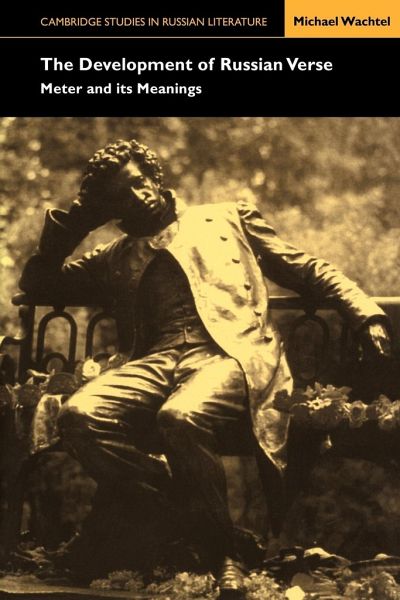
The Development of Russian Verse
Meter and Its Meanings
Herausgeber: Kelly, Catriona

PAYBACK Punkte
28 °P sammeln!
An exploration of poetic form in the Russian verse tradition from Pushkin to Brodsky.The Development of Russian Verse explores the Russian verse tradition from Pushkin to Brodsky, showing how certain formal features are associated with certain genres and, at times, specific themes. Michael Wachtel's basic thesis is that form is never neutral: poets can react positively in terms of stylization and development, or negatively in terms of parody or revision, to the work of their predecessors, but they cannot ignore it. Keeping technical terms to a minimum and providing English translations of quot...
An exploration of poetic form in the Russian verse tradition from Pushkin to Brodsky.
The Development of Russian Verse explores the Russian verse tradition from Pushkin to Brodsky, showing how certain formal features are associated with certain genres and, at times, specific themes. Michael Wachtel's basic thesis is that form is never neutral: poets can react positively in terms of stylization and development, or negatively in terms of parody or revision, to the work of their predecessors, but they cannot ignore it. Keeping technical terms to a minimum and providing English translations of quotations, Wachtel offers close readings of individual poems of more than fifty poets. He aims to help English-speaking readers reconstruct the strong sense of continuity that Russian poets have always felt, transcending any individual age or ideology. Ultimately, his book is an inquiry into the nature of literary tradition itself, and how it coalesces in a country that has always taken so much of its identity from its written legacy.
Review quote:
"In five superbly researched chapters, and an introduction and afterword that are chapter equivalents, Michael Wachtel has produced a remarkable study that fleshes out and even attaches a memorable face to several salient meters and forms....Wachtel masterfully and insightfully unravels the complicated material and renders it invitingly accessible."
The Russian Review
"For comprehensive graduate and research collections"
Choice
"This book can recommended most strongly. It should be bought by all libraries with a Russian collection and put on the reading list of every undergraduate and post-graduate course that involves the study of Russian poetry."
Pamela Davidson, Slavic Review
"In five superbly researched chapters, and an introduction and afterword that are chapter equivalents, Michael Wachtel has produced a remarkable study that fleshes out and even attaches a memorable face to several salient meters and forms. In proving that poets think diachronically, that is they do not only draw on the themes and images of their predecessors but also resort to their use of form (which is never neutral in Russian poetry), Wachtel masterfully and insightfully inravels the complicated material and renders it invitingly accessible."
The Russian Review
"The book...is the work of a scholar who does care, and who is blessed with a ability to say cogently why all readers should. Wachtel has written an exemplary book in the tradition of scholars dedicated to teaching what they know to those who will follow."
Slavic and East European Journal
Table of contents:
Acknowledgments; Note on translations and transliterations; Introduction; 1. The Russian ballad: passion, betrayal, revenge, and the amphibrachic tetrameter line; 2. The blank verse lyric: '- Again I visited' revisited; 3. The Onegin stanza: from poetic digression to poetic nostalgia; 4. Russian Arcadia: the elegiac distich and classical stylization; 5. Heirs of Mayakovsky: the poet and the citizen; Afterword: the meaning of form; Notes; Bibliography; Index.
The Development of Russian Verse explores the Russian verse tradition from Pushkin to Brodsky, showing how certain formal features are associated with certain genres and, at times, specific themes. Michael Wachtel's basic thesis is that form is never neutral: poets can react positively in terms of stylization and development, or negatively in terms of parody or revision, to the work of their predecessors, but they cannot ignore it. Keeping technical terms to a minimum and providing English translations of quotations, Wachtel offers close readings of individual poems of more than fifty poets. He aims to help English-speaking readers reconstruct the strong sense of continuity that Russian poets have always felt, transcending any individual age or ideology. Ultimately, his book is an inquiry into the nature of literary tradition itself, and how it coalesces in a country that has always taken so much of its identity from its written legacy.
Review quote:
"In five superbly researched chapters, and an introduction and afterword that are chapter equivalents, Michael Wachtel has produced a remarkable study that fleshes out and even attaches a memorable face to several salient meters and forms....Wachtel masterfully and insightfully unravels the complicated material and renders it invitingly accessible."
The Russian Review
"For comprehensive graduate and research collections"
Choice
"This book can recommended most strongly. It should be bought by all libraries with a Russian collection and put on the reading list of every undergraduate and post-graduate course that involves the study of Russian poetry."
Pamela Davidson, Slavic Review
"In five superbly researched chapters, and an introduction and afterword that are chapter equivalents, Michael Wachtel has produced a remarkable study that fleshes out and even attaches a memorable face to several salient meters and forms. In proving that poets think diachronically, that is they do not only draw on the themes and images of their predecessors but also resort to their use of form (which is never neutral in Russian poetry), Wachtel masterfully and insightfully inravels the complicated material and renders it invitingly accessible."
The Russian Review
"The book...is the work of a scholar who does care, and who is blessed with a ability to say cogently why all readers should. Wachtel has written an exemplary book in the tradition of scholars dedicated to teaching what they know to those who will follow."
Slavic and East European Journal
Table of contents:
Acknowledgments; Note on translations and transliterations; Introduction; 1. The Russian ballad: passion, betrayal, revenge, and the amphibrachic tetrameter line; 2. The blank verse lyric: '- Again I visited' revisited; 3. The Onegin stanza: from poetic digression to poetic nostalgia; 4. Russian Arcadia: the elegiac distich and classical stylization; 5. Heirs of Mayakovsky: the poet and the citizen; Afterword: the meaning of form; Notes; Bibliography; Index.





